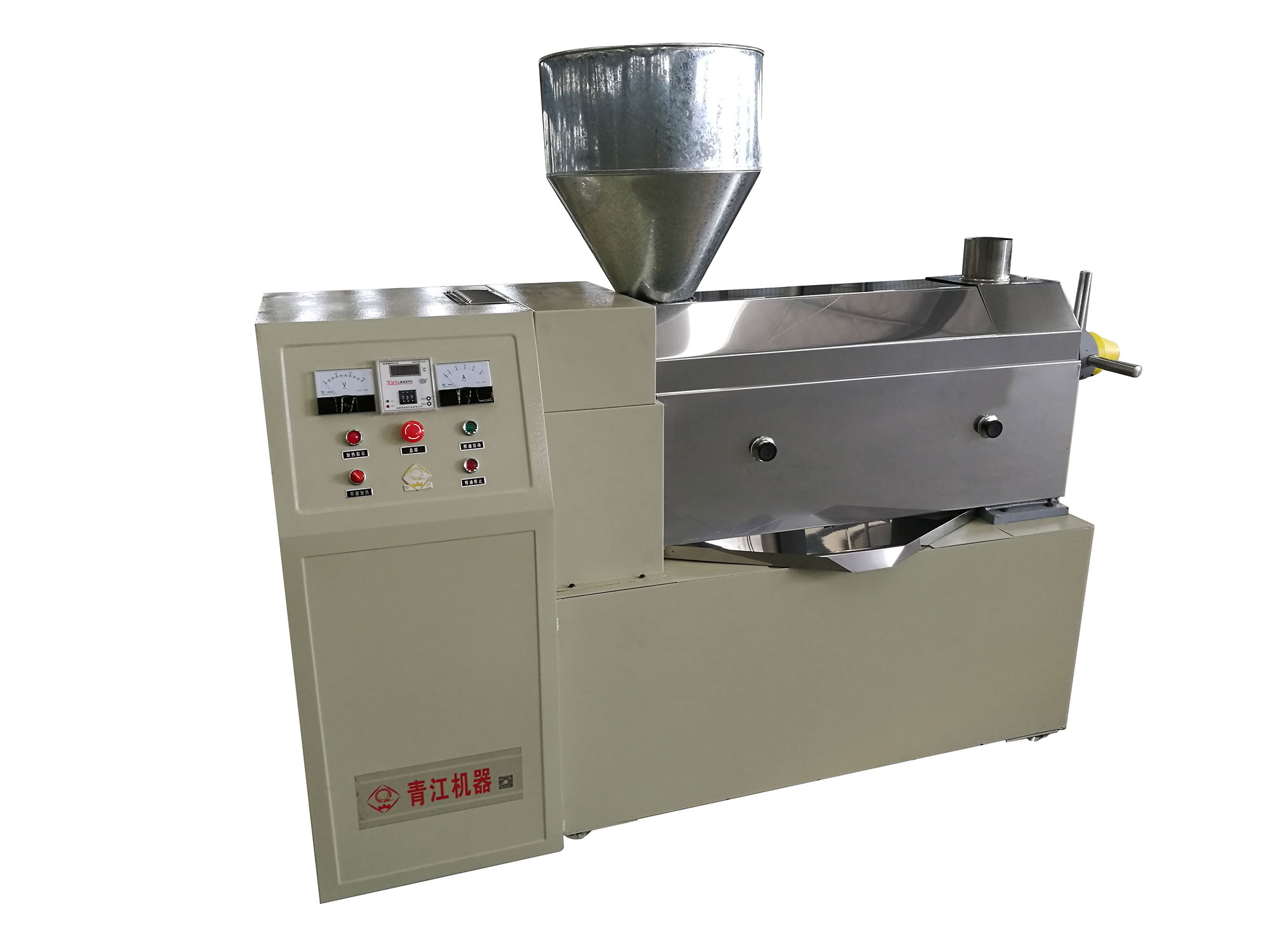
The three national vegetable oil standards of "peanut oil", "soybean oil" and "sunflower oil" were officially implemented on July 1st
- Categories:Industry News
- Author:
- Origin:
- Time of issue:2018-07-02 17:47
- Views:
(Summary description)There are many types of edible vegetable oils in my country. Soybean oil, peanut oil, and sunflower oil can be regarded as the most important oil products. The current national standards have been implemented for 15 years.
The three national vegetable oil standards of "peanut oil", "soybean oil" and "sunflower oil" were officially implemented on July 1st
(Summary description)There are many types of edible vegetable oils in my country. Soybean oil, peanut oil, and sunflower oil can be regarded as the most important oil products. The current national standards have been implemented for 15 years.
- Categories:Industry News
- Author:
- Origin:
- Time of issue:2018-07-02 17:47
- Views:

There are many types of edible vegetable oil in my country. Soybean oil, peanut oil, and sunflower oil can be regarded as the most important oil products. The current national standards have been implemented for 15 years. On December 29, 2017, the former General Administration of Quality Supervision, Inspection and Quarantine and the National Standardization Administration approved the release of new "Peanut Oil" (GB/T1534-2017), "Soybean Oil" (GB/T1535-2017) and "Sunflower Seed" Oil" (GB/T10464-2017) and other national standards will be formally implemented on July 1, 2018. This is another major event in my country's vegetable oil quality standardization work following the official implementation of the "Corn Oil" (GB/T19111-2017) national standard on May 1, 2018.
What are the main contents of the revision of these three national vegetable oil standards? What are the highlights? What benefits do they bring to consumers? For this reason, the reporter recently interviewed Xue Yalin, the main drafter of the standard and a researcher at the National Food Administration Academy of Sciences.
Prevent excessive processing and retain nutrition
The quality of vegetable oil is the most concerned by consumers, and meeting consumer demand is the basic requirement for the formulation of the finished vegetable oil standard. Under the framework of the current vegetable oil product standards, vegetable oil products have formed a more prominent contradiction with consumer demand. The above three national standards for vegetable oil products were revised and launched based on the current problems in the vegetable oil market and the above-mentioned contradictions.
According to Xue Yalin, there is widespread over-processing in the edible vegetable oil industry at present, resulting in the loss of approximately 35%-40% of phytosterols in the nutritional companion of vegetable oils, 70% of tocopherols, and 80% of squalene. During the over-processing process, not only will the nutritional companions be lost, but also new pollutants may be introduced or produced, such as trans fatty acids, polycyclic aromatic hydrocarbons and other hazards.
It is understood that the revision of the three national standards for vegetable oil products starts from the actual conditions of my country’s oils and fats, takes into account the actual conditions of domestic oil production and vegetable oil processing industry levels, and draws on international standards; in particular, they must comply with my country’s appropriate processing, energy conservation and emission reduction. , Maximize the retention of nutrients, reduce the production of hazardous materials and other new requirements. The revised standard not only has a certain degree of advancement and science, but also has strong operability; it is not only conducive to promoting the development of the domestic vegetable oil industry, but also conducive to improving the nutritional quality of domestic vegetable oil products, and enhances the market at home and abroad. Competitive ability to provide consumers with healthy and nutritious edible vegetable oil products.
Reset the level, adjust the smoke point
In terms of conforming to international standards, the characteristic indicators of this national oil product standard adopt the relevant data of the International Codex Alimentarius Commission (CAC) and refer to similar oil product standards in other countries, but the technical content is different.
The new national standard retains the reasonable parts of the original standard, and revises the four levels of quality in the original standard to three levels. The common point of the new national standard is to adjust the allowable range of acid value and smoke point. The grades of peanut oil, soybean oil, and sunflower oil extracted from the finished oil in the quality requirements of the refined oil are adjusted from grade four to grade three; the grade of pressed sunflower oil Adjust from four levels to two levels; modify the color, transparency, moisture and volatile content, acid value, heating test, smoke point, etc. in the quality indicators, such as smoke point greater than or equal to 190℃.
Xue Yalin said that the smoke point of edible vegetable oil at 190°C can meet the needs of Chinese cooking oil. The modification of many indicators such as quality grade, color and transparency, on the one hand, can guide vegetable oil processing companies to process appropriately and provide products with different nutritional ingredients for the market; on the other hand, it allows consumers to consume clearly and guide the market and consumers to choose edible vegetable oil. We should not only look at whether the appearance is clear and transparent and whether the flavor is strong, but also pay attention to food safety indicators.
Indicating craftsmanship, banning the sale of bulk
The new national standard stipulates: In addition to complying with the requirements of GB7718 and GB28050, pre-packaged edible vegetable oils in the vegetable oil market should indicate the product name, processing technology, quality grade, etc. on the label of the package; in international trade, due to the difference in vegetable crude oil and refined vegetable oil The tariffs are different, and the product name (namely classification name, such as crude soybean oil, refined soybean oil) should be identified in the packaging or accompanying documents according to terms and definitions; the label of the product "country of origin" is the country (or place of origin) where the vegetable oil is made.
For a long time, there has been constant comparison of the advantages and disadvantages of pressed oil and leached oil in the market. In this regard, Xue Yalin said that the new national standard is to strengthen the traceability of vegetable oil and satisfy consumers' right to know. In fact, no matter the vegetable oil produced by the pressing or extraction process, as long as it meets the requirements of my country's food safety standards and quality standards, consumers can eat with confidence.
"This regulation is to facilitate the supervision and management of the national market, and the second is to let consumers understand the processing technology and have the right to choose." Xue Yalin said.
In addition, in terms of food safety, especially in the point of sale, if the edible vegetable oil leaves the original packaging, it will make it difficult for consumers to distinguish the quality and safety of the edible oil, and it will also bring difficulties to market supervision. In order to ensure the quality and safety of edible vegetable oil, the new standard requires that "pre-packaged finished soybean oil/peanut oil/sunflower oil shall not be sold in bulk from the original packaging" to prevent adulteration.
is converted to recommended standards to encourage competition
The reporter learned that the three national vegetable oil standards revised and implemented this time were announced by the former General Administration of Quality Supervision, Inspection and Quarantine and the National Standardization Administration in 2017, and the mandatory national standards were transformed into recommended national standards from the date of publication. , The standard is no longer mandatory, the standard code is changed from GB to GB/T, and the standard serial number and year number remain unchanged.
In fact, with the deepening of my country's reform and opening up, it has gradually been in line with developed countries in the world in terms of standardization. First, the standard was divided into two types: mandatory and recommended. Later, a third type of standard-the mandatory standard of clauses was added, that is, there are both mandatory and recommended clauses in the same standard. With the prosperity of the market economy, the number of such standards has become larger and larger. Regardless of the preface, it is difficult to determine whether it is a full-text or a provisional mandatory standard.
The formulation of national standards is the key to improving product quality and protecting consumer interests. Xue Yalin believes that the country's conversion of some mandatory national standards into recommended national standards does not mean reducing product quality. On the contrary, it encourages enterprises to adopt voluntarily and strive to improve product quality through fierce competition, so as to achieve the goal of letting a hundred flowers bloom and creating new ones to satisfy consumers. Levels and diversified needs provide conditions for saving limited social resources.
In response to the increasing demands of consumers on the nutritional quality of vegetable oil products in recent years, and the uneven situation of domestic production enterprises, Xue Yalin believes that the implementation of the new standards will lead the development of the industry and promote similar products internationally. Quality integration and trade exchanges are conducive to standardizing the market, protecting the shared interests of the country, consumers and manufacturers; conducive to industry energy conservation, emission reduction and full utilization of resources, improving the overall level of vegetable oil processing technology, and providing nutritious and healthy food for the market Oil, to make up for the shortcomings of the current standards, is more conducive to the healthy development and progress of China's vegetable oil industry.
(Source: China Consumer News)
Scan the QR code to read on your phone
Address: Ya'an Economic Development Zone, Sichuan Province
Email: qjgs@qingjiang.com.cn
Website: http://www.qingjiang.com.cn

Follow WeChat public account

Follow WeChat Mini Program
Copyright© 2020 Sichuan Qingjiang Machinery Co., Ltd. 蜀ICP备05031934号

